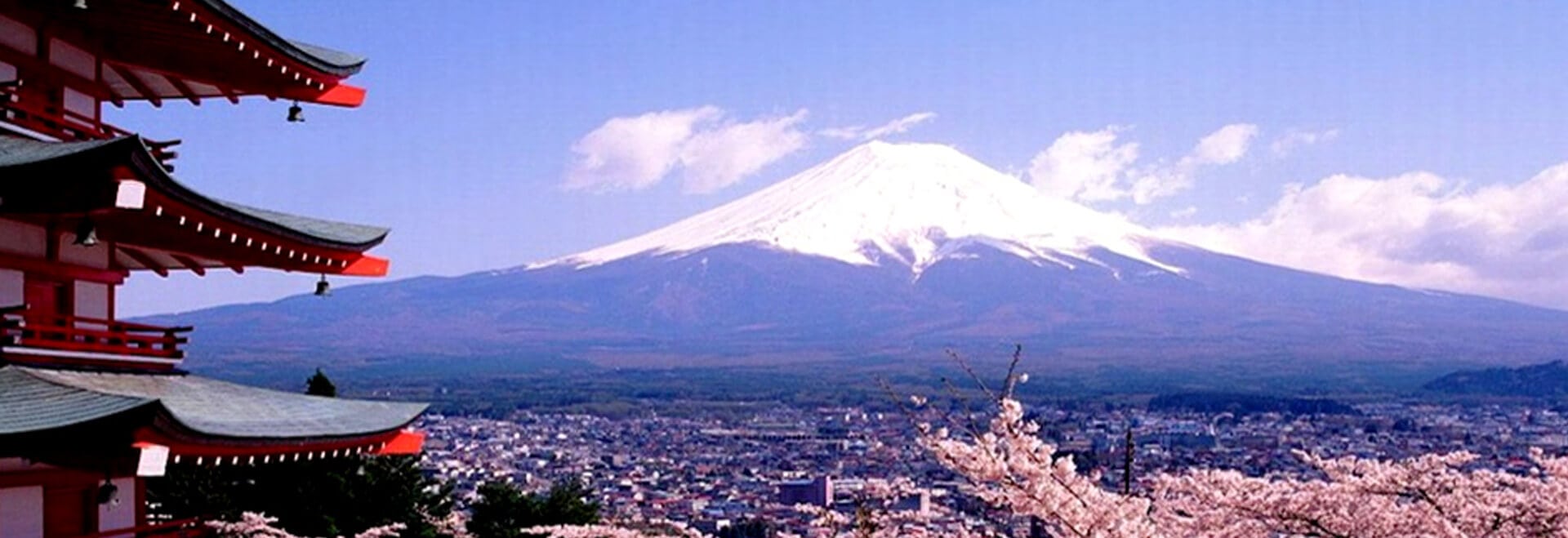Overview
Japan is an island in East Asia. It is located in the North Pacific Ocean. Japan has four main islands; Honshu, Hokkaido, Kyushu, and Shikoku, plus there are many smaller islands. The total area of Japan is 145,884 square miles. The four main islands make up about 95 percent of Japans territory. The remaining 5 percent is the more than 3,000 smaller islands. The main islands stretch about 1,200 miles and span 900 miles from east to west.
Japan is a constitutional monarchy with a parliamentary government. A constitutional monarchy is a system of government in which a monarch is guided by a constitution where the rights, duties, and responsibilities are spelled out in written law or by custom. A parliamentary government is a government is a government in which the members of an executive branch are nominated to their positions by a legislature or parliament.
Japan is one of the world's leading economic powers when concentrating on its Gross Domestic Product of four point two trillion United States dollars. Its economy is only second to the United States in terms of production. However, Japan has not always contained a relatively strong economy. The Japanese's economic strategies have boosted economies to new heights since its fall during the Second World War because of their unorthodox manner of business etiquette, innovative strategy, and strong relations with stable economies such as Canada and the United States.
Why you should study in Japan?
Japan is one of the best destinations for Nepali students from several perspectives. There are some crucial reasons why you should study in Japan.
-
To obtain world class education:
The cutting edge innovation for which Japan is known didn't happen spontaneously. A formidable higher educational system with a commitment to research and development stands behind it. Need more proof? Japan boasts Asia’s highest number of Nobel prize winners thanks to its extraordinary academic tradition.With approximately 780 universities from which to choose, as well as specialized vocational institutions, the academic options for international students are nearly boundless. Read more about Yokohama National University, the International University of Japan, Waseda Business School, APU Japan, Doshisha Business School, the NUCB Graduate School, Hitotsubashi ICS, Globis University, and Keio Business School.
-
Easy access to the universities:
As of May 2012, there were just under 140,000 international students in Japan, and that number is expected to skyrocket over the next 16 years due to the Global 30 initiative. This pledge by a collective of Japanese national universities seeks to attract 300,000 students from all over the world to study in Japan by the year 2020 -- a number which will ultimately account for 10 percent of the country’s entire student body. To that end, universities are pulling out all the stops for international students, beginning with a simplified application process, continuing throughout the study experience and culminating with help on the job trail. Other measures designed to attract global talent include letting students start in September -- as opposed to during Japan’s traditional academic starting month of April; allowing more coursework to be taught in English; recruiting global teaching staff, and encouraging both inbound and outbound international exchange programs. Read more about Bachelor and Master programs available in Japan.
-
Easy access to the universities:
But international students aren’t just sought after in the classroom. A recent New York Times article discussed a new push by Japanese companies to recruit international talent for a more global business representation. Just how sought after are non-Japanese college graduates? In a survey of more than 800 Japanese companies, nearly 50 percent of them plan to recruit from a non-Japanese pool of college grads. Many even have a 10 percent quota.
-
You can both study and save money:
While it's true that Japan is an expensive place to live, there are plenty of ways to enjoy a good education at a reasonable price. While living costs may be high, tuition fees are comparatively cheap -- particularly up against those in the United States and the United Kingdom. Furthermore, a tuition fee exemption program for foreign students goes a long way in cushioning the financial blow, as do a multitude of scholarship opportunities from the government, private universities, foundations and corporations designed to support international students of all levels and across all academic disciplines. Read more about Students' Saving Tips.
-
You will live amazing cultural experiences:
If you're hoping for a glimpse into a fascinating and completely different way of life, look no further than Japan. After all, how many other countries can lay claim to being the birthplace of both Pikachu and haiku? Japanese culture intriguingly merges contrasting elements for a harmonious society in which the old and the new seamlessly blend together. From customary to cutting edge, students gain exposure to 2,000 years worth of culture and history in one remarkable place.
University in Japan

The government is keen to attract more international students and has set a target of having 300,000 foreign students in the country by 2020 (it reached the 100,000 mark in 2003). As a result, universities are focusing on making life easier for foreign students, from the application process all the way through to finding a job after graduation.The government is keen to attract more international students and has set a target of having 300,000 foreign students in the country by 2020 (it reached the 100,000 mark in 2003). As a result, universities (University in Japan) are focusing on making life easier for foreign students, from the application process all the way through to finding a job after graduation.
One thing that will certainly help to attract international students is the introduction of more courses taught partly or entirely in English. Other schemes to attract more overseas students include:
- Hiring special staff to support international students
- Allowing students to start courses in September (instead of April, which is when Japan’s academic year usually starts)
- Recruiting more teaching staff from outside Japan
- Increasing exchange programs with universities in other countries
Aware that living and studying in Japan are expensive compared to many countries, the government has also introduced additional financial support for foreign students. Various university scholarships and grants are available through the Ministry of Education, Culture, Sports, Science, and Technology (MEXT) and the Japan Student Services Organization (JASSO).
There are approximately 780 universities in Japan, of which about 80% are private. There are also specialized schools and colleges that provide more vocational types of degree.
The nation’s strongest global ranking is currently claimed by the University of Tokyo, which ranks joint 28th in the QS World University Rankings® 2018, up six places from the previous year. Close behind are Kyoto University (joint 36th) and Tokyo Institute of Technology (56th), with a further 40 Japanese universities ranked among the world’s best. Close behind are Kyoto University (joint 37th) and Tokyo Institute of Technology (56th), with a further 36 Japanese universities ranked among the world’s best.
